Social Media Marketing for Law Firms

Table of Contents
Social media marketing is no longer optional for law firms; it’s a necessity in 2024. Most law firms, or lawyers hesitate to engage and post on social media, believing it is time-consuming.
But doing so could be a big mistake for your business in today’s growing digital landscape. You are missing out on a huge opportunity to show your expertise, connect with your potential clients and grow your business.
Believe it or not, Social media is a powerful client acquisition tool for law firms. According to recent statistics:
- The latest figures indicate that social media users are expected to increase by 6.5% worldwide in 2023.
- 93% of lawyers use social media, and 85% of them use it as a part of their marketing strategy.
- An impressive 71% of lawyers are getting clients through social media channels.
- 55% of lawyers find social media extremely effective for keeping them up to date regarding current trends in the legal industry.

This clearly indicates that there is a big opportunity for law firms to invest in social media marketing. And we’re to help you get remarkable results from this opportunity without spending a fortune.
In this ultimate guide to social media for law firms, we’ve done the research for you. You will learn everything from the latest trends to best practices, the best social media platforms for lawyers and more.
Let’s begin to explore how to create a winning social media marketing strategy for law firms and how you can make the most of it.
Why is Social Media Marketing Essential for Law Firms and Lawyers?
If law firms are serious about marketing their services effectively, they cannot overlook the significance of social media for too long.
While some lawyers believe it’s a fad or distraction, the reality differs.
Social media is one of the best ways to attract new clients and grow revenue. Let’s have a look at the reasons why social media marketing is essential for law firms:
Builds Brand Awareness
More and more people are becoming active on social media, which means you have a huge opportunity to attract your target audience.
Backlinko found that there will be 246 million in 2023, meaning 72.5% of Americans are on social media, and the total population will be 331.9 million (2021).
Building a brand for lawyers is more than just having a fancy logo and profile image. Having a strong social media presence helps you get your message in front of the right audience while growing your authority.
Most of the top USA law firms are already aware of brand building and marketing themselves right on social media platforms. You can also enhance your law firm’s brand authority by maintaining an active presence and sharing valuable content or insights on social media.
Adam Loewy is an excellent example of a law firm that has effectively built its brand awareness using social media.

Attract New Clients
Besides organic search and referrals, social media is an invaluable way of generating leads and attracting prospective clients for your law firm. Creating valuable legal content and networking helps you gain exposure and influence your prospects to take the desired action.
Social media is also an essential part of your sales funnel, as it can drive people to your law firm’s website. For example, from seeing you on social media to hiring your law firm, your sales funnel could look like this:

Your law firm’s or personal social media profiles act as landing pages that allow you to reach a larger audience beyond your website visitors.
Builds Trust And Credibility
Another benefit of social media marketing for law firms is that it improves trust and credibility. You can earn credibility by consistently sharing valuable content, tips, tricks, and opinions about your legal field.
Moreover, publishing success stories and client testimonials on social media helps law firms showcase their track record of positive client reviews.
This social proof will help you win the trust of your target audience. As a result, it may also persuade prospective clients to hire a law firm or a lawyer for their legal needs.

Establish Thought Leadership
Social media allows law firms to establish themselves as thought leaders and experts in their practice areas. You can become a go-to source for information in your legal field by using social media to share tips, tricks, and other helpful content.
This helps build your credibility among the audience and differentiates your law firm from its competitors.
For example, you are an expert in personal injury and criminal defense. Here’s how you can leverage social media to be the number one source of information for your clients.

Real-Time Engagement With Community
Social media provides law professionals with an excellent opportunity to interact and connect with like-minded peers through lawyer groups. These lawyer’s groups are valuable resources for staying updated on industry trends.
Interacting with other lawyers in these groups allows you to broaden your professional network. You can make the most of these lawyer groups by engaging in relevant discussions and sharing your thoughts with people having similar interests or practice areas.
Moreover, LinkedIn and Facebook groups for lawyers are excellent forums to seek advice and guidance on legal matters. You can easily find lawyer groups on LinkedIn and Facebook specific to your practice area.

The Top Social Media Platforms for Lawyers in 2024
Choosing the best social media platform for your law firm requires careful consideration of customer demographics and the skillset of your marketing team. Different platforms cater to a variety of audiences and content formats.
There is no wrong platform, the key is finding the one most suitable for your business needs and activities. Depending on your target audience, content preferences, and other factors, you can assess which platform is right for you.
Let’s have a look at the best social media platforms that lawyers should consider.
Facebook / Meta
Facebook is the most used platform worldwide, with around 2.93 billion active users. Even among lawyers, it is the most often-used platform. That’s why it’s the perfect pick for legal professionals to find their target audience.
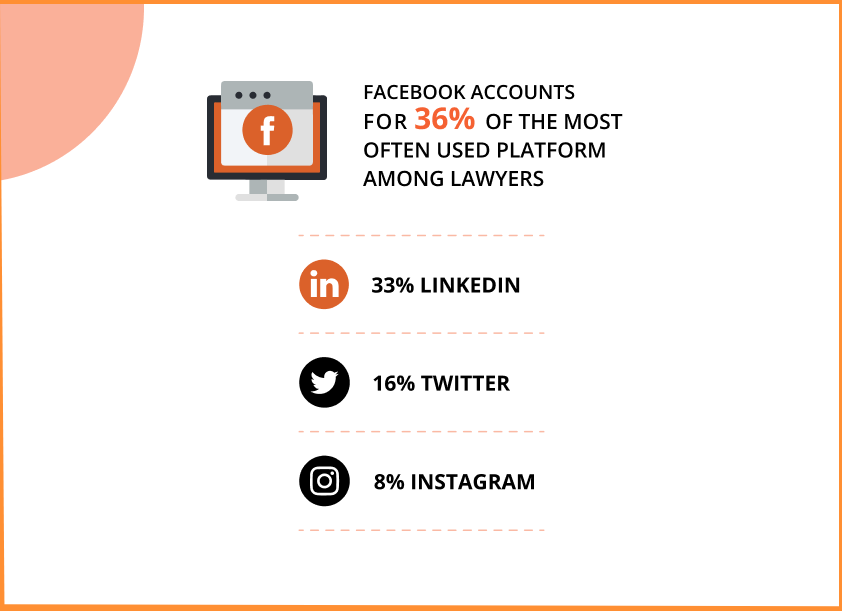
Facebook is the best platform for promoting your brand and building a community. Additionally, you can use it to advertise your offerings, create leads, and increase website traffic.
Here are some tips on Facebook Marketing for Lawyers:
- Set up a separate business page for your law practice, distinct from your profile.
- Include relevant information on your page, such as contact information, website link, and the services you provide.
- Create engaging content that displays your expertise, values, and personality.
- Encourage your close friends, family, clients, and colleagues to follow and like your page.
- Stream live videos answering questions, sharing tips, and providing updates with Facebook Live.
- Comply with your jurisdiction’s ethical rules and regulations regarding advertising and solicitation.
With around 87% of lawyers reporting active participation, LinkedIn is an excellent platform for establishing authority and generating referrals for your business. It is a powerful tool for promoting professional services, building a solid reputation in a practice area, and developing a professional persona.
Here are a few ways lawyers can use LinkedIn effectively:
- Create a compelling profile with a headline that resonates with your audience and highlights your skills, USP, and achievements.
- Connect with potential clients, colleagues, and referral sources.
- Maintain an up-to-date profile with important information such as publications, testimonials, awards, and case results.
Instagram is a visual-based social media platform that allows you to publish up to 60-second videos and photographs. This platform may be an excellent alternative for you if your clientele is younger or you practice in a consumer-focused area of law.
Consider the following tips to become a successful lawyer on Instagram:
- Make sure your profile picture and username are professional.
- Create a bio that tells people what you do and who you are.
- Identify and follow peers, legal professionals, and potential clients relevant to your practice.
- Your bio should include a link to your website or landing page.
- Create captivating photos and videos that showcase your USP and brand values.
- Use hashtags to boost the exposure and discoverability of your content.
- Be authentic and genuine in your content and communication.
Mike Mandell | Lawyer (@lawbymike) Instagram feed is an excellent source of inspiration for distributing content on the platform.

Twitter / X
Twitter is the best platform to be if you want to share your quick thoughts. Its microblogging format facilitates lawyers to engage in lively conversations on legal matters.

Thompsons Attorneys is an excellent example of using Twitter effectively to its full advantage.
Here are some tips on how lawyers can make the most of Twitter:
Thoughtful Tweets: Showcase your legal expertise through impactful and engaging tweets. You can provide value to your audience by sharing legal tips, insights and current legal events.
Share blog posts and articles: Tweet links to your firm’s blog posts and articles. Doing this can drive traffic to your website and reach a wider audience.
Engage in conversations: Get involved in discussions with other legal professionals. You can increase visibility and expand your network by participating in Twitter chats and using relevant hashtags.
YouTube
Video content is the most viewed content on social media as it grabs your audience’s attention immediately. Using video content in your law firm can help you convert leads into clients, even though it may not seem obvious.
It becomes easier for your viewers to build personal connections through your videos. When potential clients see you through videos, they’ll feel more comfortable and less hesitant to reach out regarding their legal matters.
Burges Salmon is great example of law firm that posts helpful videos on YouTube about their practice areas, life art their firm, podcasts and more.

Consider the following before you start promoting videos on YouTube:
- Professional quality: Make sure you have the necessary resources to produce and share professional-quality videos. Using YouTube as a marketing tool requires investment in video production. Poorly produced and shoddy videos will hurt your brand.
- Valuable and unique content: Think about what you are going to share in your videos and determine whether it is valuable and unique. Don’t produce videos just for the sake of it; offer useful information and insights to your viewers.
- Confident on-camera presence: Your firm’s representative on camera should be at ease speaking on camera and present a strong, authoritative presence. By doing so, you will establish trust and credibility with your audience.
- Varied content types: Include a variety of video content, such as educational videos explaining legal concepts, client success stories, and Q&A sessions.
- SEO optimization: To make your videos more visible to potential clients, implement SEO strategies by optimizing your video descriptions, titles and tags. This can help your videos rank higher in search results and make them more discoverable.
6 Proven Strategies For Effective Social Media Marketing For Law Firms
Now you know social media’s role in helping you grow your law practice. But to make the most of it, you must have the right strategies in place. Here are the strategies you must implement to get maximum ROI for your law firm.
Define Your Goals
Having clarity of your goals and setting clear objectives is a crucial part of social media marketing strategy. The first and foremost thing is determining what you want to accomplish, such as generating leads, establishing through leadership, increasing brand awareness, or driving website traffic.
Once you have clearly defined objectives, you can align your social media strategies and content to help you reach them. You need to have SMART goals to reap the rewards of your social media marketing strategy.
SPECIFIC: Your goals should be as specific as possible to achieve the targeted objective. If your goal is to increase leads from social media, you might set a goal of increasing engagement by 40% within a specific period.
MEASURABLE: Set measurable goals to track your progress and success. Identify which metrics you will use to evaluate your goals.
ACHIEVABLE: All your goals should be easily achievable. How realistic is the goal to be successful? How can I accomplish the goal?
RELEVANT: The goal should align with your law firm’s values. Determine whether that goal will move forward your law firm in some way or not.
TIME-BOUND: Set realistic timeframes to achieve your goals. Calculate how long it will take to accomplish them based on the budget, the complexity, and the resources.

Research Your Competitors
The next crucial step in your social media marketing strategy for your law firm is to conduct competitor research. Knowing your competitors’ strengths and weaknesses can help you establish a strong social media presence and position your firm for success.
If you practice personal injury in Birmingham, enter that keyword in Google and see who are your top competitors are.
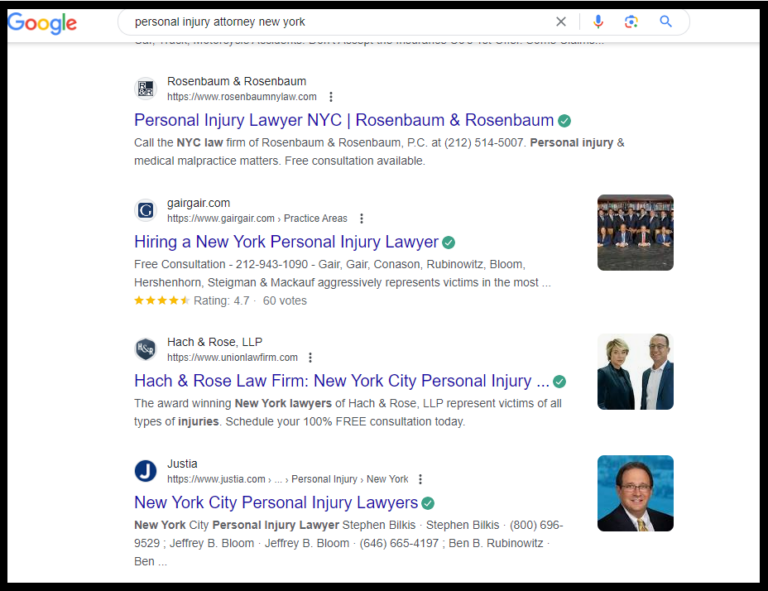
Here’s how to approach competitor research:
Identify your competitors: Start by identifying your main competitor in the legal industry. These are individual lawyers or law firms targeting the same audience and providing services similar to yours. You already likely know who your competitor is, but if you are unsure, a simple Google search using relevant keywords can reveal your competitors.
Examine their social media presence: Take a look at your competitor’s social media profile and evaluate what’s working for them and what’s not. Analyse the type of content they post, how often and their engagement levels.
Observe their weaknesses: Pinpoint areas where your competitors are underperforming on social media. For example, if another law firm is not posting on TikTok, consider investing more in your TikTok presence to gain a competitive edge on that platform.
Fill the gap in your content: Take notes of best practices your competitors are following and strive to elevate your own content. Fill in the gap in your content using the insights you have gathered from competitors’ research. Make sure to create content that is unique and different from your competitors.
Monitor their social media activities: Keep track of how your competitors engage with their audience. Pay attention to the comments, questions, and feedback they receive. This can provide ideas for improving your own engagement strategies.
Understand Your Audience
Once you have identified your competitors, it is time to identify your target audience and create your client persona. Understanding your audience is more than just knowing basic demographics.
It involves learning about their pain points, needs, and preferences to help you create social media content that resonates with them.
This is what “understanding your audience” truly means:
Relevant demographics: You may need to dive into specific demographics based on your field of law. For example, If you specialise in criminal law, you should know the previous crime history of your audience.
Basic demographic details: Recognizing your target audience’s essential characteristics like age, income level, location, and family status can be helpful when targeting your marketing efforts.
Familiarity with legal language: It’s essential to consider your audience’s familiarity with legal jargon. Only use complex legal terms if your audience is not well-versed in legal language.
Common Legal Issues: Knowing what legal issues your audiences face helps you proactively address their concerns and offer relevant solutions through your content.
Craft relevant content: Once you understand your audience’s preferences and priorities, tailor your social media posts accordingly. Use a mix of long-form and short-form content for time-conscious individuals or those seeking in-depth knowledge.
The client persona of your law firm represents your ideal client. When you know your potential client, you can create social media content that is most relevant to them. As a result, it will increase your chances of attracting more leads and generating revenue.

Position Yourself As An Expert
It is a crucial aspect of social media for lawyers to be the go-to person in their field of law. People will reach out to you when they see that you are a reliable and trusted lawyer in your subject matter. And social media is the best place to show your expertise effectively.
Here are some tips on how to establish yourself as an expert in your practice area:
- Share links to credible resources, legal updates, and articles on your social media profiles.
- Promote your content by sharing blog posts and valuable content you have created in your practice area.
- Engage with your audience to further establish your credibility. Immediately respond to comments and queries from your followers.
- Demonstrate your expertise by showcasing your competence in your practice area.
Benesch Law is an excellent example of a law firm showing expertise in its practice area on its LinkedIn page.

Create Engaging Content
The content you create and share is the key to your online presence. You must focus on providing value to your audience through every post.
Your content should reflect your expertise, goals and value to your potential clients.
Identify what type of content works on each platform, and then create your posts accordingly. Your LinkedIn audience might prefer more in-depth and informational content, whereas TikTok marketing is the opposite of that. The TikTok audience being young, prefer to consume light and engaging content.
We recommend striking a balance between original content and reposting content from others. Whether you want to create videos, images or text base posts, that’s totally up to you just make sure all your posts deliver immense value.
One way to plan your content strategy is to develop content pillars. These broad themes or topics set the foundation for you to create posts on different topics.

For example, as a lawyer, your content pillars could be:
- Case studies and testimonials
- Industry news and trends
- Company culture and values
- Legal tips and advice
By using these pillars you can easily generate ideas for different types of content. Not to forget, the key is to maintain consistency in your content while maintaining your online presence.
Track Your Progress
Measuring the results of your social media campaigns is crucial to understand their effectiveness and to track the results that you are achieving.
Regularly tracking your performance metrics lets you identify what content resonates more with your audience and optimise your strategy to achieve better results.
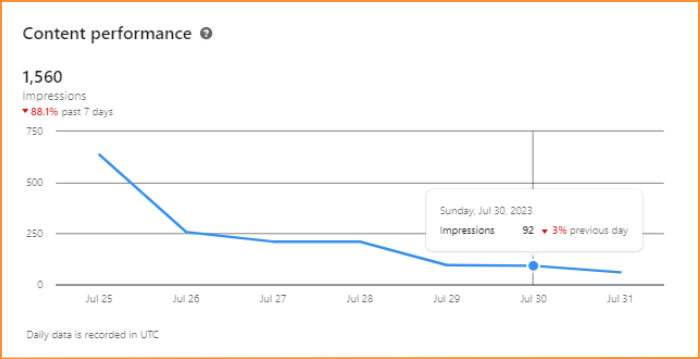
Most social media platforms, such as LinkedIn, have their own built-in analytics that provide valuable insights into your content performance.
You can easily see metrics such as click-through rate, engagements, likes, comments, profile views, impressions, etc.
Tracking progress empowers you to make data-driven decisions. If certain content is underperforming, you can modify your strategy to attain better results in future.
How to Create Social Media Posts for Lawyers and Law Firms: 5 Ideas To Inspire You
1. Legal tips and advice
Educate your audience by sharing helpful legal advice regarding the legal system. You can share recent cases or a breakdown of legal concepts.
This kind of content helps build trust in you and makes your potential clients more likely to reach you.
This one provides a great explanation of a legal term:

2. Share Case Studies And Testimonials
32% of people consider testimonials the most essential factor when hiring a lawyer. That’s why you must showcase your successful client review on your social media platforms. This helps to establish your credibility in the legal landscape.
Use graphic templates from sources such as Canva to highlight positive reviews, and add a brief caption to thank client and publish.

3. Share a recent legal update or article
Inform the audience regarding current legal issues that your firm is handling or share industry-specific articles. This will keep your followers engaged and updated on what you have been doing or any changes in your practice area.
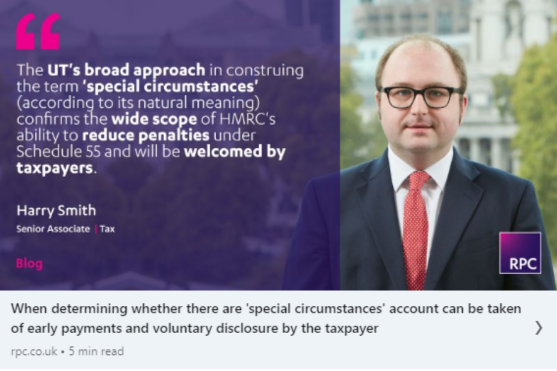
4. Introduce your team members
Humanise your law firm by introducing your team members. Sharing your team’s personalities, awards, and achievements helps make your law firm more memorable. People are more likely to connect with real people, so showing your firm’s personal side can attract more potential clients.
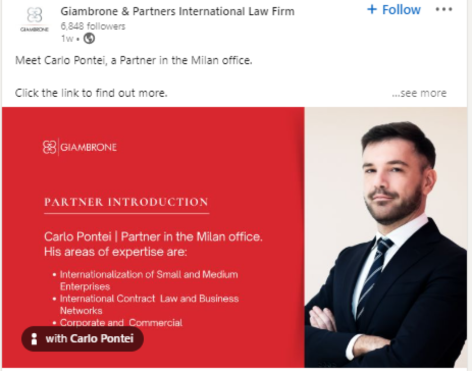
5. Share your law firm's activities
Share snapshots from community events or activities that your firm is involved in. This can improve engagement, foster a sense of community and increase your firms reputation as well.
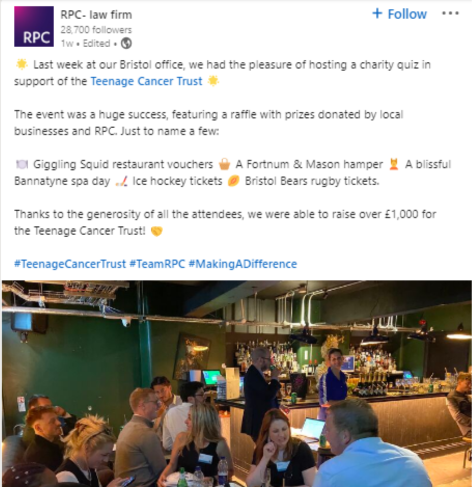
Now you know the best practices and strategies you need to build your social media marketing campaign and attract new leads. By following the right strategies and selecting the social media platform that works best for your law firm you can take your online presence to new heights in just few months.
If you want a robust social media marketing strategy for your law firms we can provide you with the one that meets all your social media needs with in a competitive budget. If you need further assistance or have any questions, feel free to contact us today.
Free Consultation
Book a Free Marketing Guide Consultation
One of our marketing specialists will contact you to discuss your budget and needs.
If we sound like a fit, we will prepare a proposal within 24-48 business hours
